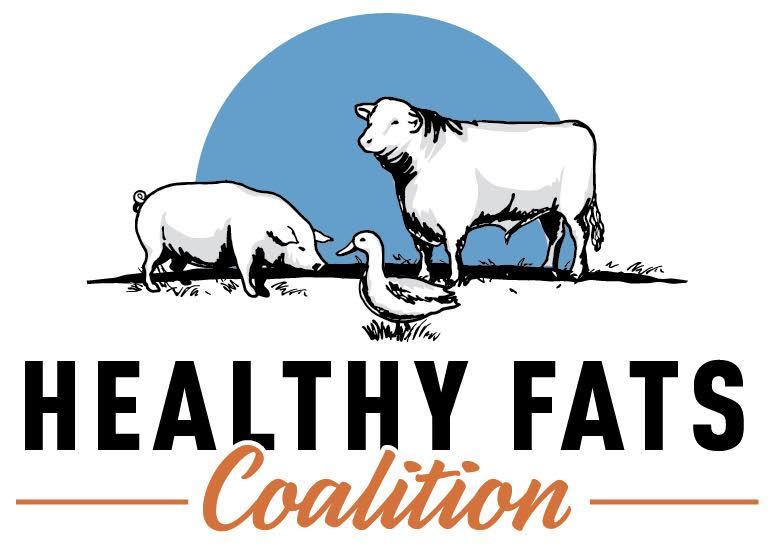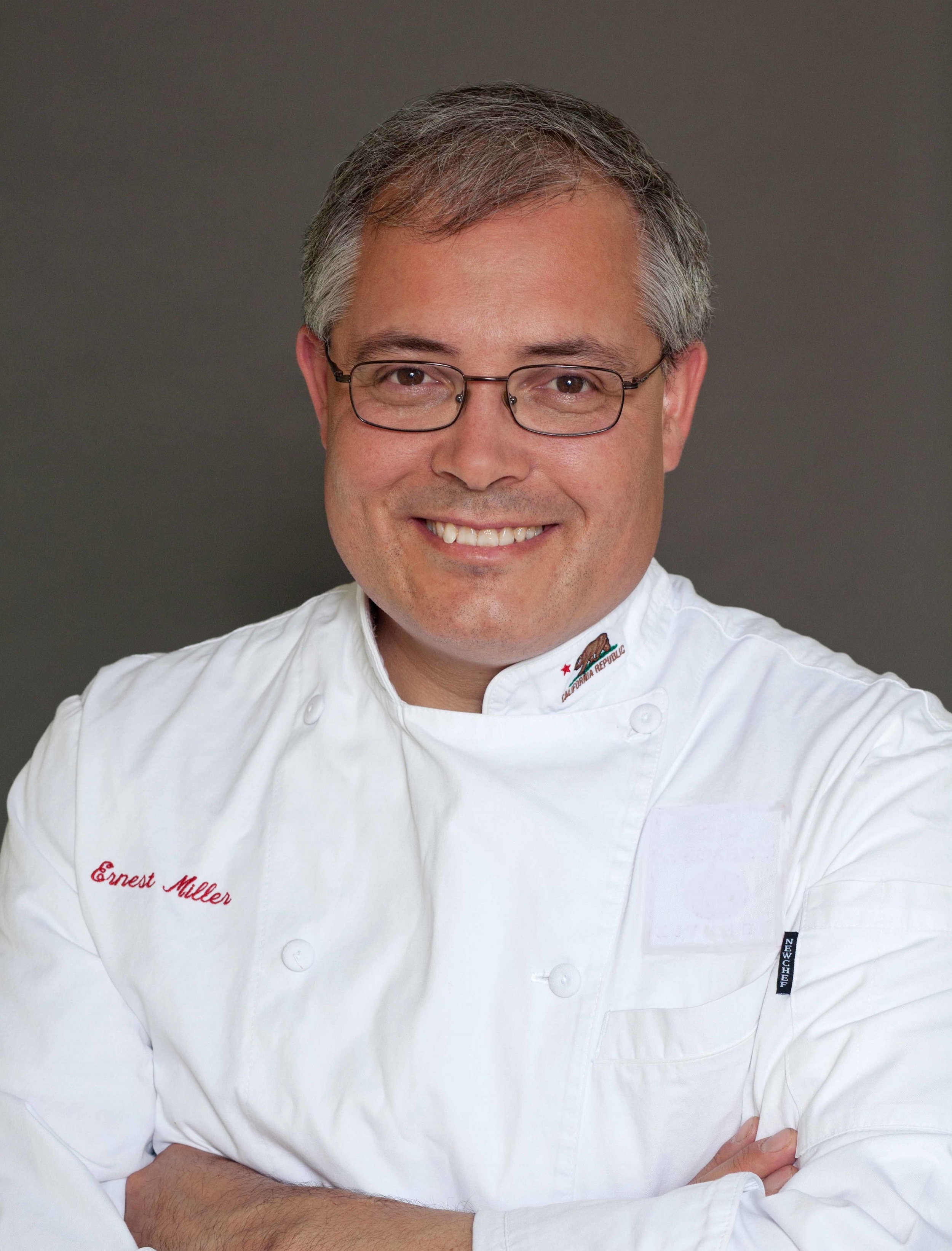Q: How much fat should people have in their diets?
Chef Ernie: That's going to vary person to person. The thing with all diets is, human beings are different. We're going to need different diets as we age. We're going to need different diets as our lifestyles change overall. So there's no real firm answer as to how much fat is good.
Low fat diets that became very popular in the '80s and '90s have failed on so many levels. Although we can't talk about exactly how much fat, we certainly should be increasing the amount of fat that we're eating in general.
Q: Why is that? Doesn't fat make us fat?
Chef Ernie: That's actually quite the misnomer. You know, the words are exactly the same, fat and fat. But consumption of fat does not automatically lead to obesity. Our bodies are very different. A calorie in is not a calorie out.
Depending on the hormones in our body, that will determine, for example, when a calorie comes in whether that calorie's going to be used immediately for energy, whether that calorie's going to go to short-term storage as glucose in the bloodstream, or whether that calorie will be stored as fat in our body, and again, and where in our body -- whether it's subcutaneous fat or visceral fat around our organs, which are actually two very different types of fat, and how they affect our metabolism is substantially different.
So, fat doesn't necessarily make you fat. In fact, there have been many successful diets where you eat more fat and actually lose weight more efficiently. In fact, that's one of the main failures of a low-fat diet is that most people actually have a tendency to lose less weight on a low-fat diet than they do on a diet that contains more fat.
Q: Certain food writers, like Michael Pollan, have said that the problem with food science is that it looks at nutrients, at individual ingredients and individual foods, and that you can't isolate this thing or that and say it's the culprit. Do you agree with that?
Chef Ernie: There's a lot to be said for that point of view. Obviously, there are very important things that we can break up. You know, the entire realm of micro nutrients such as particular vitamins - we know exactly what happens if you don't get enough vitamin C. You get the disease scurvy. And we know how much vitamin C you need to get in order to prevent scurvy.
So we can talk about the elements of nutrition to a certain limited extent. But, again, feeding ourselves is actually a more holistic thing. So, we’re talking more about whole foods, natural foods, real foods, how we actually go about eating and how we share meals -- food is never just food. If food were just these micro nutrients and macro nutrients, then we could all just be drinking meal replacement shakes, and that would be the end of my job.
Q: There’s been some research around the concept that fat itself has a taste. Are you familiar with that?
Chef Ernie: Yes.
Q: If that’s accurate, how does that affect behavior? Does anybody know whether it's the taste of fat, as opposed to the specific ways that fat shows up in various foods?
Chef Ernie: The science of flavor is an ongoing exploration. We don't have all the answers yet. But I talk about the science of flavor as opposed to the science of taste.
Our tastes are what we get through our tongue and the taste receptors in our mouth. But, the science of flavor has to deal with all of our senses -- sight, sound, hearing, touch, taste. And then they're all combined by the brain.
It's actually the most complex sensory experience we go through on a regular basis, developing the sense of flavor. Some studies indicate that, right now, we think that there are basically five tastes -- salty, sweet, sour, bitter and umami, Japanese for deliciousness that is our sense for amino acids.
And there’s some talk that there is a taste bud for fat. It certainly affects our sense of texture -- things that are unctuous, that are rich, that have a certain mouth feel, as we say. But there may actually be a taste bud that recognizes the presence of fat. They’re still trying to figure it out. They also think there may be taste buds for metallic flavors, for carbonic acid and a few other things, as well.
Animal fats such as lard and beef tallow contain a real sense of umami, which most vegetables do not. They bring that sense of richness, that sense of flavor you get with ingredients like parmesan cheese or sautéed mushrooms and other rich sources of umami.
Q: The Healthy Fats Coalition itself is fairly new. Is the organization signing up new participants, particularly among dieticians, nutritionists and physicians?
Chef Ernie: We are getting a great deal of interest in the HFC. And if you keep track of the website, you'll see that we're getting support from all over the food and nutrition world, people who are realizing that animal fats have been unfairly demonized over the last half century or so. We're definitely bringing more and more people aboard all the time.
Q: As the Healthy Fats Coalition grows, how can somebody participate who's not in the food industry? Is there a role for consumers in the Healthy Fats Coalition?
Chef Ernie: There is. The Healthy Fats Coalition is still developing its programming, and working on some events down the road. We're still recruiting for our Board of Directors. But consumers can definitely participate. They can start by demanding that their suppliers, whether grocery stores or restaurants, begin to incorporate more of these healthy fats in their foods.
Q: What’s the relationship between the Healthy Fats Coalition and Coast Packing?
Chef Ernie: Coast Packing took the initiative to start this education campaign, but it actually has a number of different organizations as a part of it. For example, the Weston A. Price Foundation -- which is well known for its non-profit status in providing nutrition education based on some of the earliest studies by the famous dentist/researcher, Dr. Weston A. Price -- helped the industry to figure out what some of the best nutritional practices among indigenous peoples were. The HFC also includes other organizations that are busy making tallow and lard, duck fat and other animal fats -- providers such as Fatworks, a Colorado-based company who we're big fans of. We have authors and chefs and restaurants. We're seeing more and more people joining the organization every day.


